Editor’s Note:
“Cognitive Warfare” has become a new form of confrontation between states, and a new security threat. With new technological means, it sets agendas and spreads disinformation, to change people’s perceptions and thus alter their self-identity. Launching cognitive warfare against China is an important means for Western anti-China forces to attack and discredit the country.
Some politicians and media outlets have publicly smeared China’s image by propagating false narratives in an attempt to incite and provoke dissatisfaction with China among people in certain countries. These means all serve the seemingly peaceful evolution of the US strategy to contain China’s rise and maintain its hegemony.
The Global Times is publishing a series of articles to reveal the intrigues of the US-led West’s China-targeted cognitive warfare, and expose its lies and vicious intentions.
This is the 13th installment in the series. As the Solomon Islands’ general elections unfold, allegations of US interference surfaced before the voting began. Experts have highlighted the US’ habitual practice of interfering in the domestic affairs of other countries and attempting to exert its pressure on developing nations like the Solomon Islands that seek to forge friendships and pursue development opportunities with China.
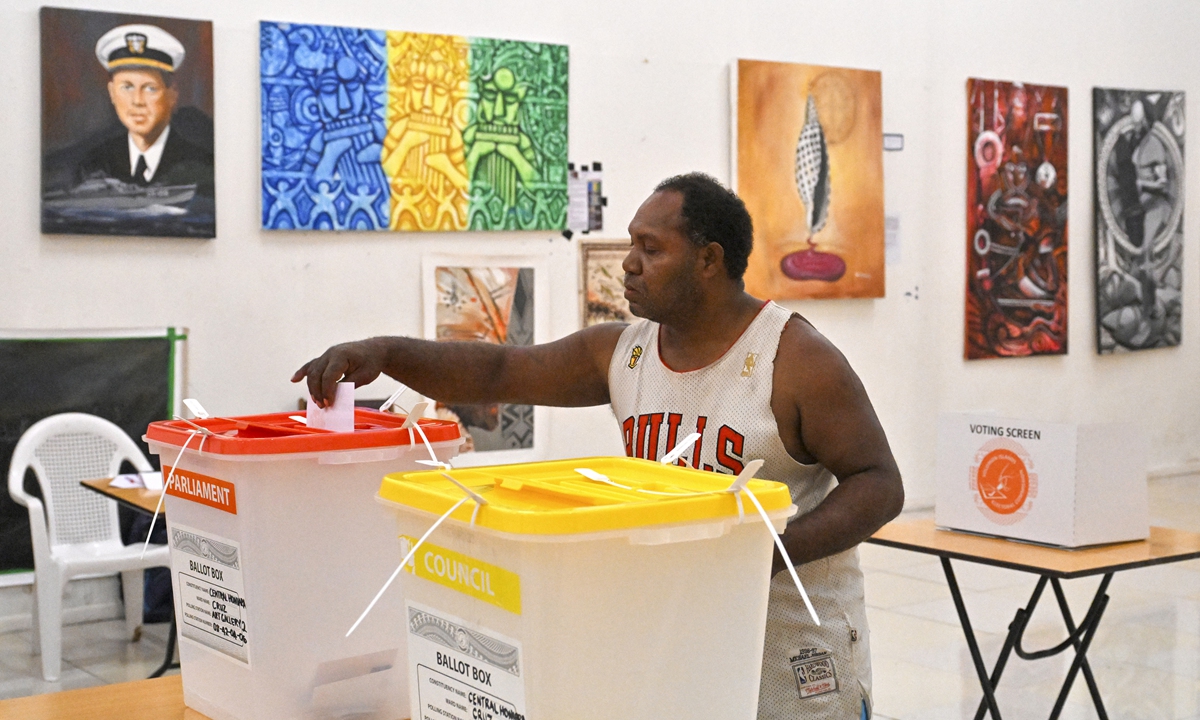
A voter casts his ballot during the Solomon Islands’ elections in the capital Honiara, on April 17, 2024. Photo: VCG
The ongoing election in the Solomon Islands has garnered significant global attention, particularly amid the geopolitical dynamics of the Pacific. This electoral event has especially piqued the interest of the US, accompanied by various allegations and concerns regarding potential US intervention.
The voting of general elections in the Solomon Islands was hosted on April 17. Currently, no party has won a majority of seats in the Solomon Islands’ parliament election, CGTN reported Monday, quoting local media, citing 90 percent of counted votes.
Preliminary results from Saturday indicate that Solomon Islands Prime Minister Manasseh Sogavare has successfully retained his seat in Parliament. However, it will take several more days of vote tallying to determine if his party, Our Party, will form the next government.
During this period, there has been continuous news and extensive reporting by media outlets, suggesting that the US may be trying to intervene in the Solomon Islands’ elections.
Analysts point out that the US and its allies appear to be using “color revolution” tactics to infiltrate the political landscape of the Solomon Islands, emphasizing that the island country should have the sovereign right to choose its own developmental path.
Meanwhile, as China enhances its cooperation with Pacific Island countries, the US continues to assert its supposed superiority, an approach that appears not to resonate with the island populations, they said.
How has the US been attempting to exert its influence?
A recent investigative article by Russia’s Sputnik news agency criticized the US’ role and intentions in the upcoming elections in the Solomon Islands. The report suggested that the US Agency for International Development (USAID) might be attempting to influence the election outcome through “democracy promotion” activities, in order to counter China’s influence in the region.
The report highlighted concerns over the security agreement between the Solomon Islands and China, which has alarmed the US and its allies who fear it could compromise the US’ “island chain strategy” in the Pacific.
The article detailed USAID activities in the Solomon Islands, including engaging with local community political leaders, civil society organizations, and influential individuals, as well as funding surveys and training programs to bolster anti-government sentiment.
An anonymous source disclosed to the Sputnik news agency that they fear the US might incite another riot during the upcoming election to achieve its geopolitical goals.
Meanwhile, according to a report from the Covert Action Magazine earlier this month, the USAID actively intervenes in the electoral processes of other countries through its Consortium for Elections and Political Process Strengthening (CEPPS), aiming to promote regimes that align with American interests.
The CEPPS collaborates with organizations such as the International Republican Institute (IRI), the National Democratic Institute (NDI), and the International Foundation for Electoral Systems (IFES), all of which have close ties with USAID, with the NDI and IRI having been created by the National Endowment for Democracy (NED), which is considered a branch of the Central Intelligence Agency (CIA).
According to Yu Lei, chief research fellow at the Research Center for Pacific Island Countries of Liaocheng University, the effective cooperation between China and the Solomon Islands has become a role model and a driving force for the cooperation between China and Pacific Island countries, which has encouraged other Pacific Island countries such as Papua New Guinea to deepen their cooperation with China. This has caused significant dissatisfaction in Australia and the US.
The Covert Action Magazine noted that the USAID’s Solomon Islands Election and Political Processes Program (SIEPP), funded through the CEPPS, has conducted voter awareness campaigns in the Solomon Islands, aiming to sway voters toward pro-American candidates.
In 2021, NDI’s surveys in opposition constituencies revealed pessimism about governance and corruption, influencing public opinion. Civil society groups, funded by USAID, spread these findings to foment dissatisfaction and potential unrest. By doing so, the USAID transformed minority views into “mainstream” public opinion, according to the Covert Action Magazine.
Notably, opposition leaders Matthew Wale and Daniel Suidani, supported by USAID, led protests in Honiara, leveraging youth groups to challenge the government, reflecting USAID’s strategy of using local partnerships to promote US interests under the guise of “democratic” principles, the magazine said.
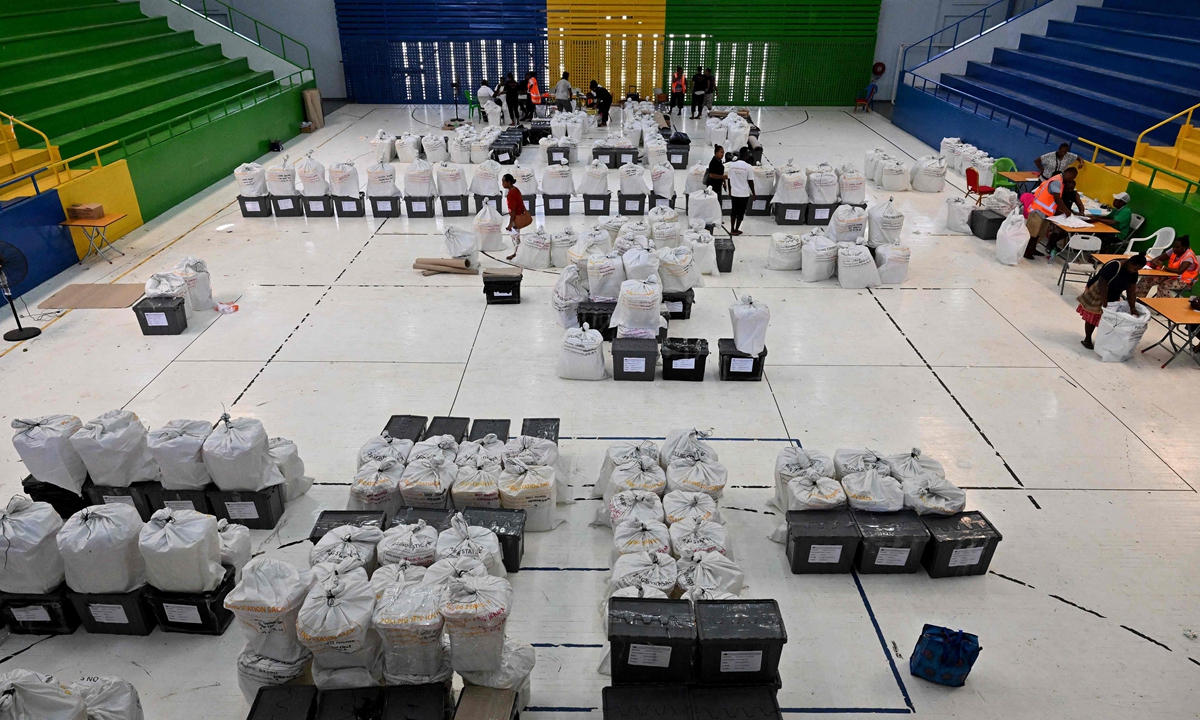
Electoral officers busy in ballot boxes verification prior to start vote counting in Honiara, capital city of the Solomon Islands, on April 18, 2024. Photo: VCG
According to the Sputnik report, which cited documents provided by an anonymous source, after the Solomon Islands’ 2019 election and Sogavare’s shift away from the US, SIEPP was launched. Funded by the USAID and partners like the IFES, IRI, and NDI under the “Strengthening Democratic Governance in the Pacific Islands” initiative, SIEPP had an initial budget of nearly $10 million from September 2020 to September 2023. The program, expected to conclude in fall 2023, was extended to April 2024 with an additional $1.5 million after the election postponement by Sogavare.
“The US cannot tolerate the South Pacific nations developing an equal and reciprocal relationship with China. Instead, it intervenes under the guise of democracy, ultimately aiming to turn these nations into dependencies,” Li Haidong, a professor at the China Foreign Affairs University, told the Global Times.
He pointed out the consequences of such policies. “The US mentality is unhealthy, even pathological. It cannot bear the autonomous development of the South Pacific nations, nor can it stand the idea of these countries choosing their own economic development models.”
Is US’ denial convincible?
In a statement released on April 16, one day before the elections began, the US Embassy in Honiara, the capital of the Solomon Islands labeled recent accusations of its alleged interference in the Solomon Islands’ electoral process as “questionable” and “disinformation.”
“It is a traditional and deeply rooted practice that when the US claims non-interference, it’s either hard to believe or astonishing,” Li noted.
According to the Covert Action Magazine, CEPPS has extended its influence to over 140 countries, supporting like-minded candidates to aid the US government in manipulating global electoral activities.
According to New York-based Huff Post, the US has interfered in foreign elections far more frequently than it has been subject to such interference itself. A Latin American joke cited highlights this point: “Why has there never been a coup in the United States? Because there’s no US Embassy in Washington.”
For over a century, the US has intervened in elections globally, from Honduras to Vietnam to Iran. A series of “color revolutions” occurred in Eurasia starting in 2003, such as the Rose Revolution in Georgia, the Orange Revolution in Ukraine, and the Tulip Revolution in Kyrgyzstan, all characterized by electoral protests escalating into major political crises. The US State Department has acknowledged playing a role in these regime changes, according to the report.
“The US uses NGOs to interfere in other countries’ domestic politics and orchestrate color revolutions, a tactic that is no secret to the world,” Li noted, adding that such actions, often branded as promoting democracy, are perceived as attempts to sow discord and crises, drawing scrutiny and raising alarms among policymakers and citizens globally.
These so-called democracy promotion efforts, which are essentially color revolutions, are unlikely to achieve their intended outcomes due to the instability of US policies. Critics argue that the US, while chaotic in its own democratic practices, presumes to set an example for others, Li said.
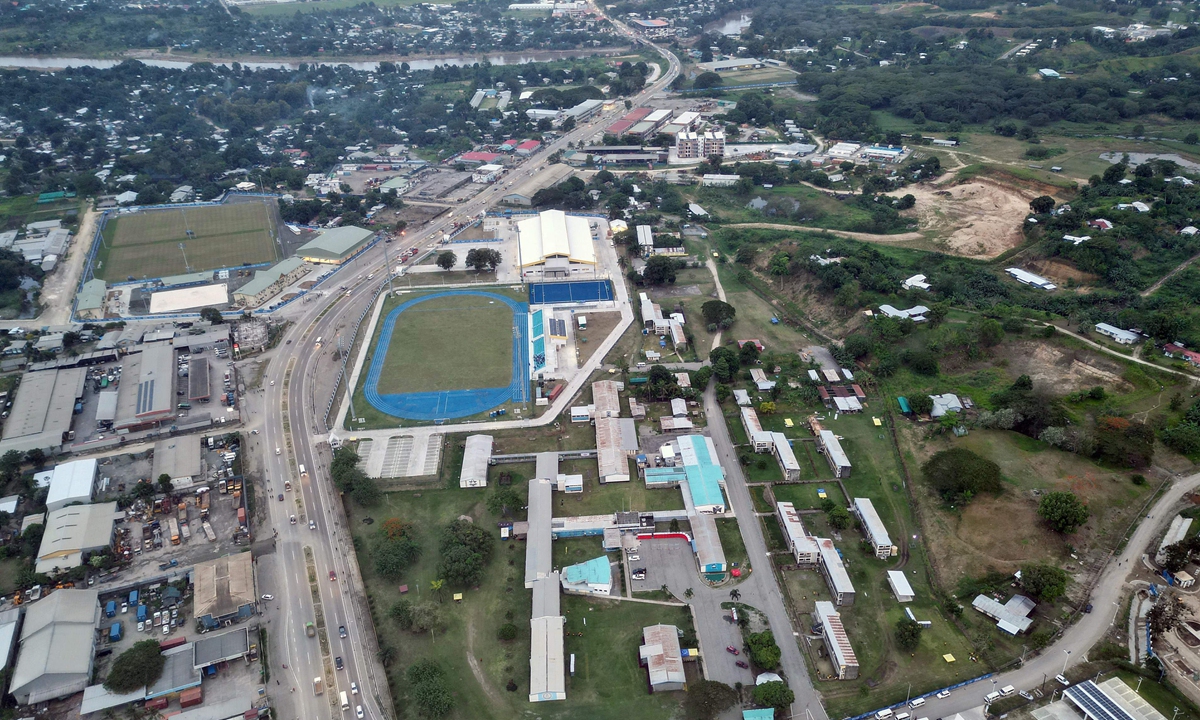
An aerial view of Honiara, capital of the Solomon Islands, showing the stadium built with Chinese aid in the center, which served as the venue for the Pacific Games in November 2023. Photo: VCG
This lack of calm, objective, and realistic reflections on its own democratic processes disqualifies US decision-makers from legitimately influencing the internal affairs of other nations. Consequently, these actions are met with resistance and resentment, as the results of such democracy promotion activities are often subpar and unwelcome, he noted.
Yu said the US has a variety of conventional methods to tighten control in Pacific Island countries. For instance, the US directly deploys military forces in Pacific Island countries to intervene, or mobilizes local mobs and thugs to carry out subversion against some authoritarian regimes and governments perceived as disobedient to the US. The third method is to use the Pacific Islands Forum to besiege so-called disobedient countries, using economic sanctions as a way to exert pressure.
“In the short term, the effects may seem significant, such as through military occupation, which of course yields immediate results. However, in the medium to long term, the effects of the US’ activities turn out to be just the opposite. But cooperation with China turns out to be fruitful,” Yu said.
Will the established understandings be affected?
In recent years, China’s outreach and engagement have deepened across the Solomon Islands. Even regions that were once opposed to establishing diplomatic ties with China have accepted China’s olive branch.
However, the gradually establishing mutual connections and trust is not without its challenges.
According to a report by the SIBC on Saturday, former opposition leader of the Democratic Party of the Solomon Islands, Wale, retained his seat in Malaita Province’s Auki. Meanwhile, notorious opposition politician Suidani was re-elected to the Malaita Provincial Assembly.
The former premier of Malaita Province, Suidani, attracted attention for his opposition to the Solomon Islands’ relations with China. His stance led to conflicts with the central government, culminating in his removal from office in February 2023, following a no-confidence motion passed by the provincial assembly.
However, a Memorandum of Understanding to establish friendly exchange relations was signed last week between Malaita Province and East China’s Jiangsu Province. This new chapter follows years of skepticism, indicating a pivot toward cooperation and mutual growth, analysts noted.
“The China-Solomon Islands relationship, forged under very trying conditions, is now maturing,” Dr Luke Mani, director of the Solomon Islands Foreign Policy Advisory Secretariat, told the Global Times. “Evidence abounds that Solomon Islanders [have now] firmly and openly embraced China.”
Various infrastructure projects funded by traditional multilateral development partners such as the Munda Airport and terminal upgrades, Henderson Airport runway extensions, and East-West Honiara highway have benefited from the expertise and quality of Chinese engineering firms such as China Civil Engineering Construction Company and China Railway, Mani said.
These tangible benefits have gradually warmed the Malaitians to China, with a recent poll showing 61 percent of respondents favor maintaining the relationship after this year’s elections.
The public opinion storm over interference in the election reflects Pacific Island nations’ dissatisfaction with the US’ use of aid to exert political influence and as leverage in exchange for national geopolitical interests, noted Qin Sheng, an executive research fellow at the Center for Australia, New Zealand, and South Pacific Studies, Chinese Academy of Social Sciences
“The aid competition promoted by the US in the South Pacific region with a zero-sum game mindset is forcing Pacific Island nations to take sides, as evidenced by the ongoing troubles in domestic and diplomatic affairs since the Solomon Islands established diplomatic relations with China,” Qin said.
In stark contrast to the US, China emphasizes equality and mutual benefit, non-interference in internal affairs, and aid process without strings attached, respecting the political system, development stage, and development characteristics of Pacific Island nations. As a major power, China never looks down on them, and it is precisely these various advantages of Chinese aid that make China the most trustworthy South-South cooperation partner for Pacific Island nations, the expert noted.
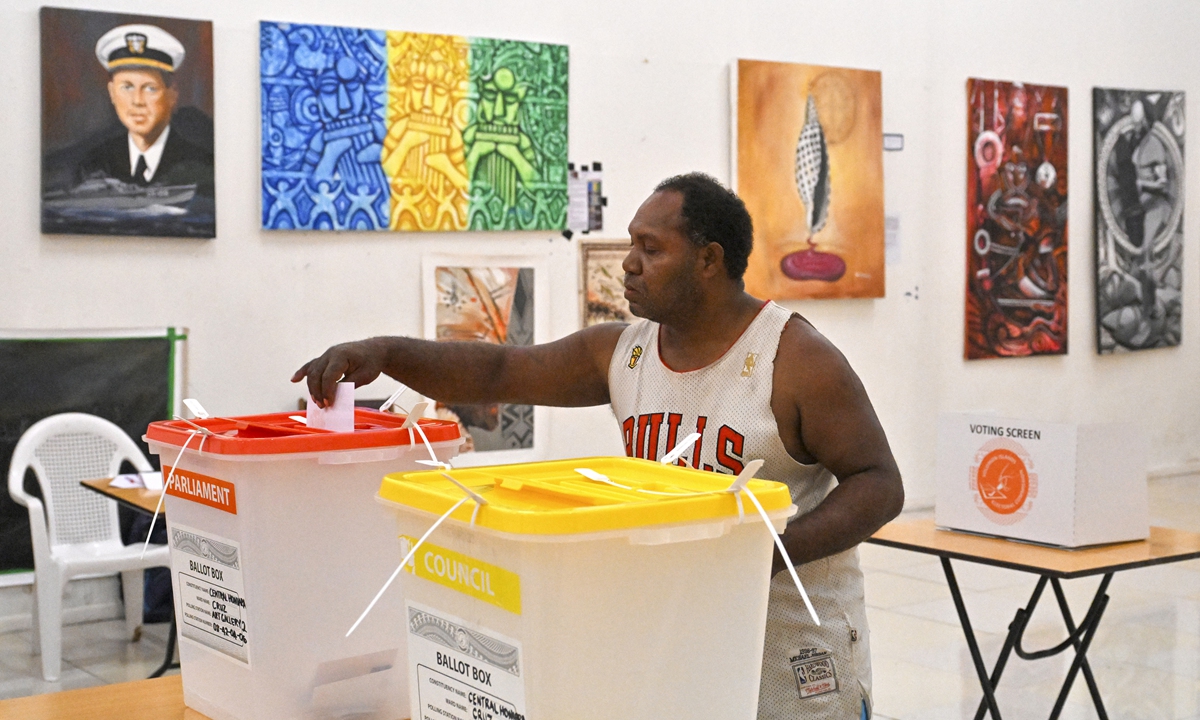




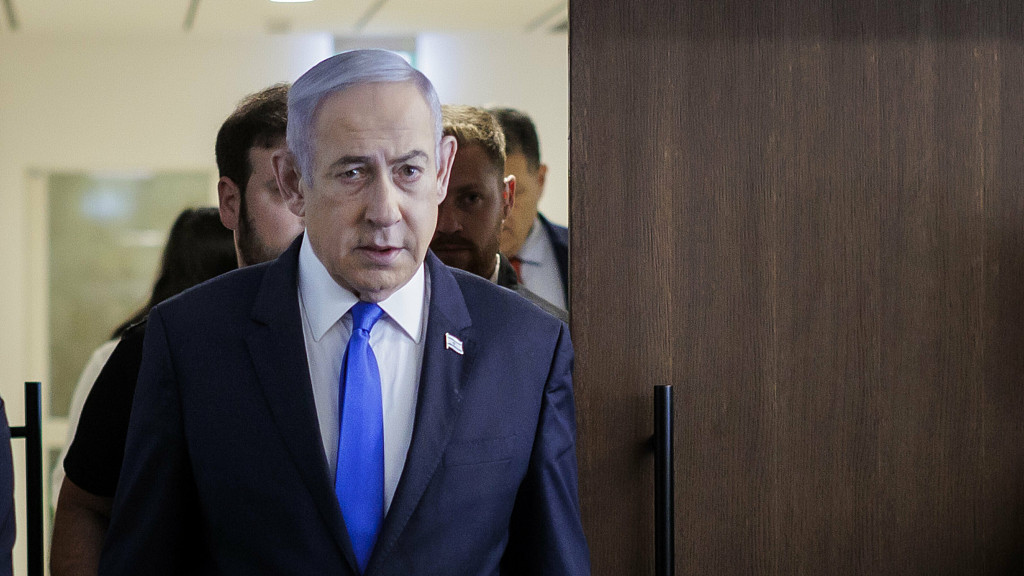
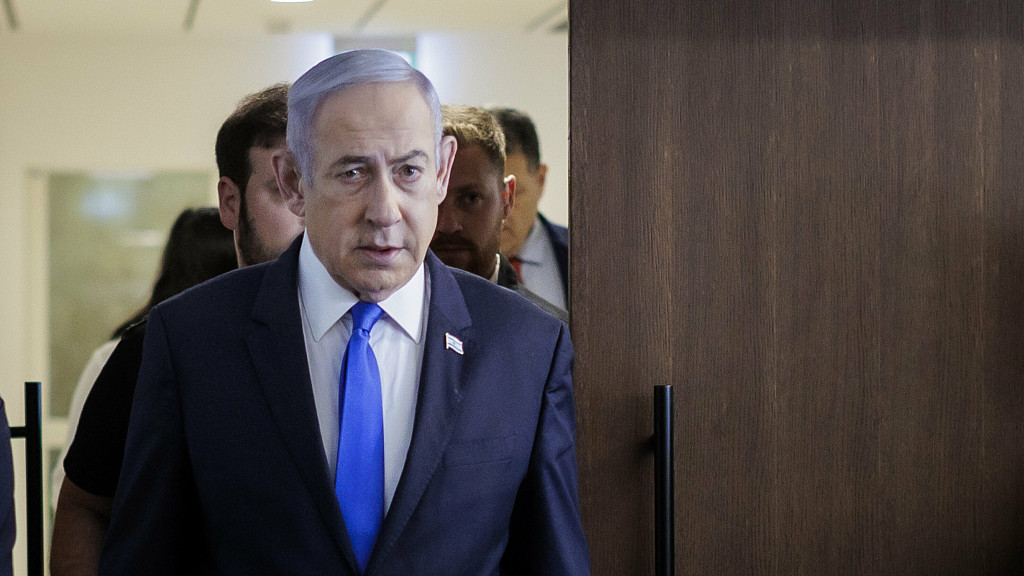 Israeli Prime Minister Benjamin Netanyahu comes to a meeting in Jerusalem, Israel, April 17, 2024. /CFP
Israeli Prime Minister Benjamin Netanyahu comes to a meeting in Jerusalem, Israel, April 17, 2024. /CFP  Smoke rises above buildings during Israeli bombardment in Rafah in the southern Gaza Strip, April 21, 2024. /CFP
Smoke rises above buildings during Israeli bombardment in Rafah in the southern Gaza Strip, April 21, 2024. /CFP 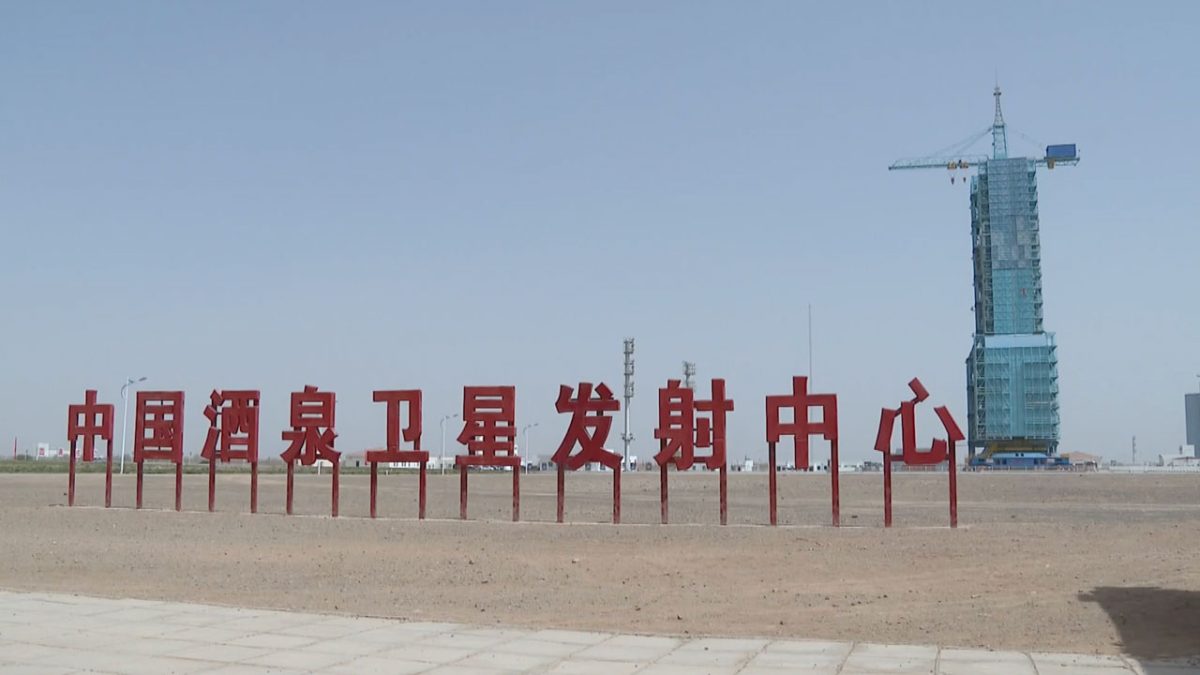
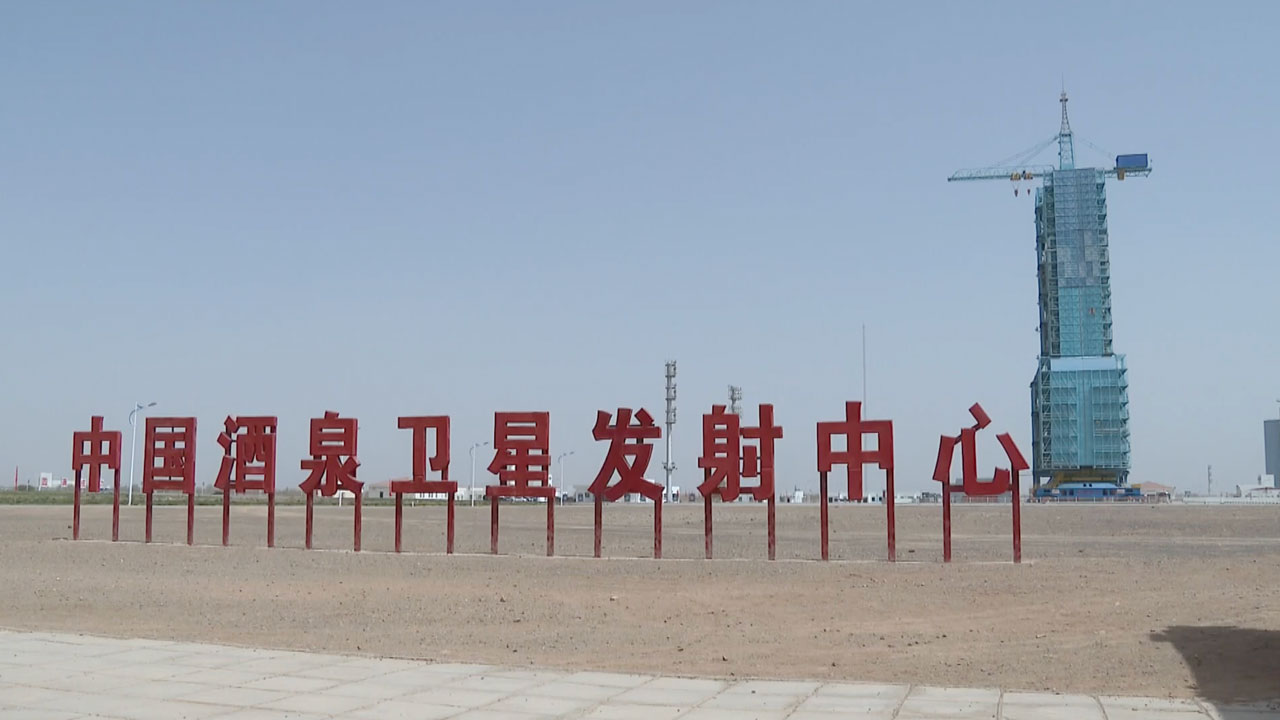


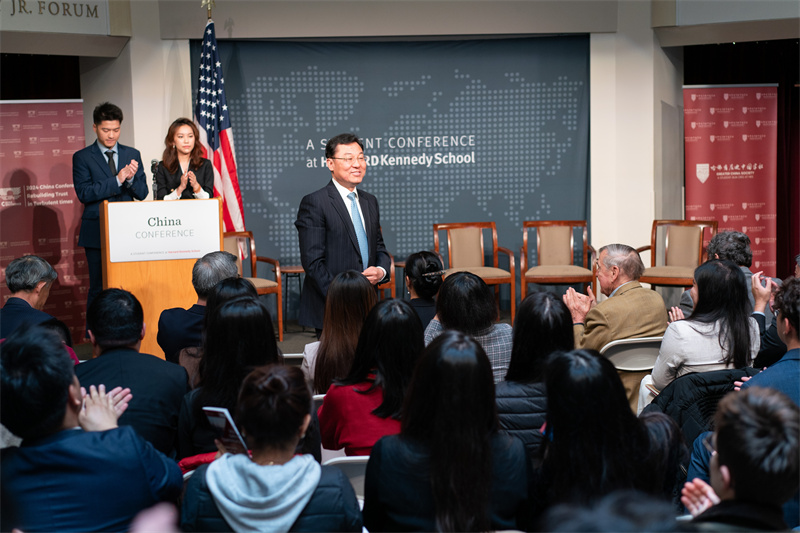
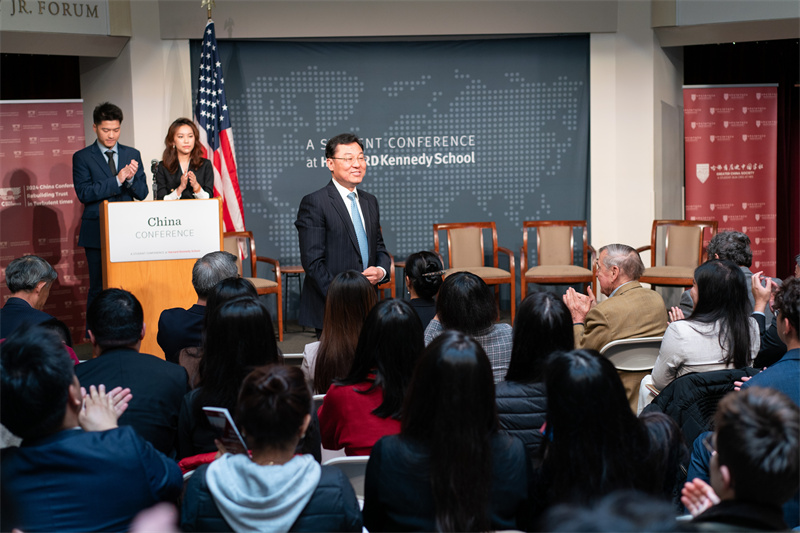 Chinese Ambassador to the United States Xie Feng delivers a speech during the opening ceremony of the Harvard Kennedy School China Conference 2024, April 20, 2024. /Chinese Foreign Ministry
Chinese Ambassador to the United States Xie Feng delivers a speech during the opening ceremony of the Harvard Kennedy School China Conference 2024, April 20, 2024. /Chinese Foreign Ministry 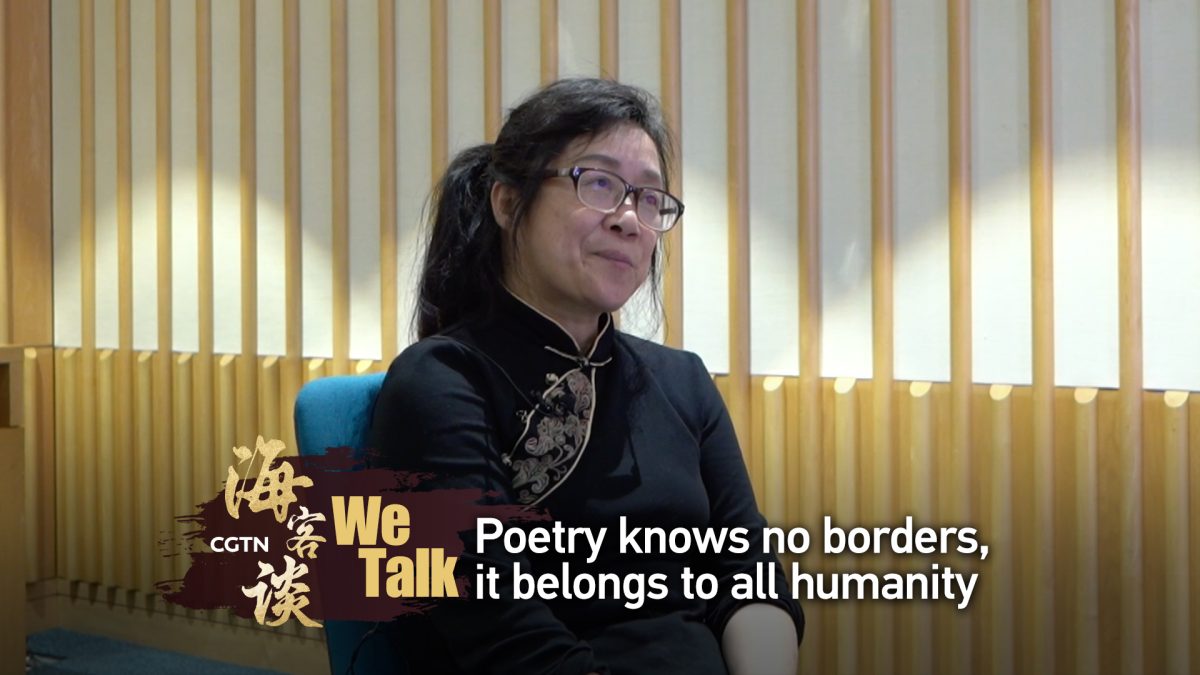
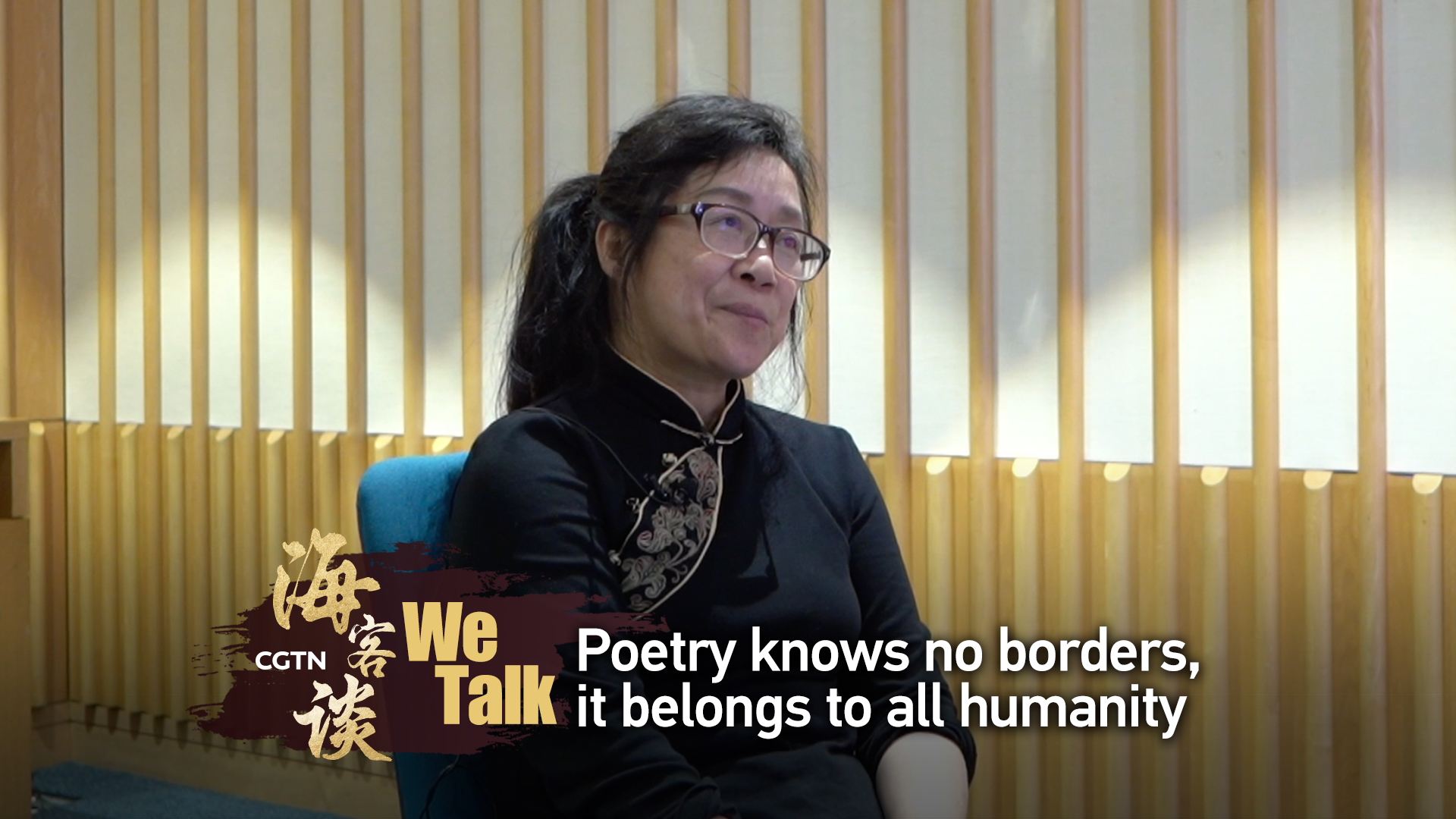
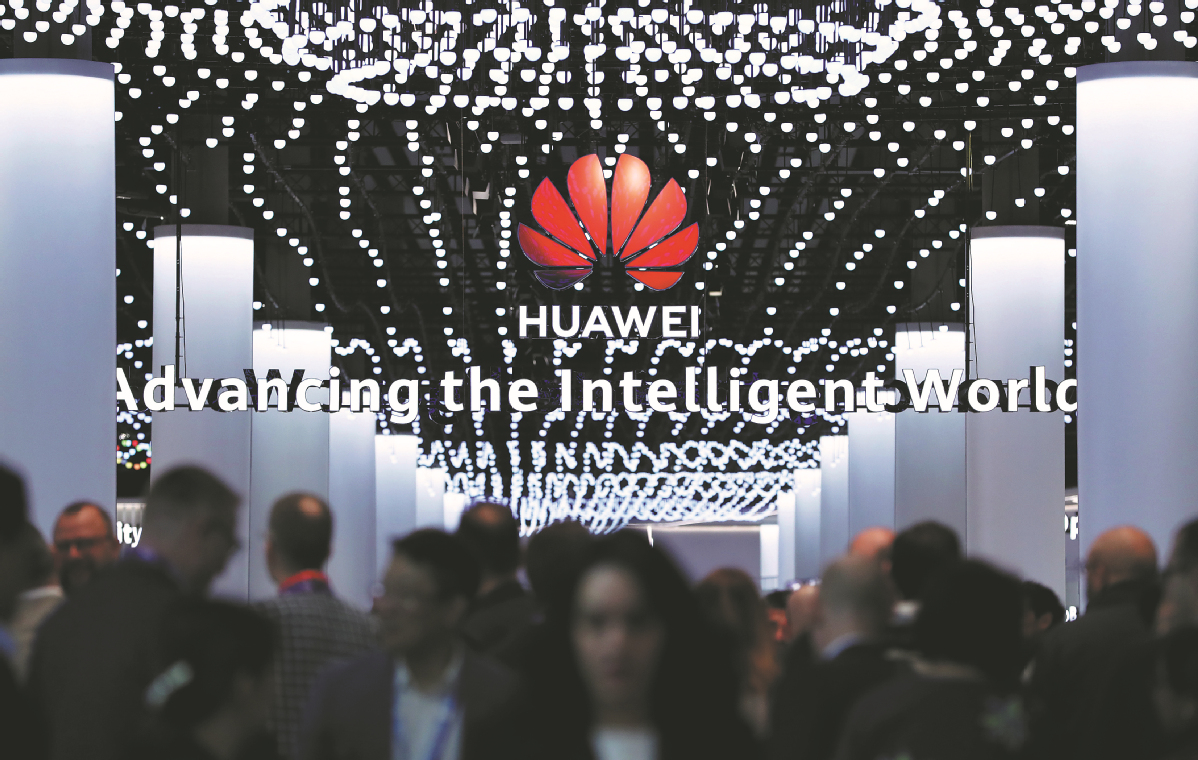
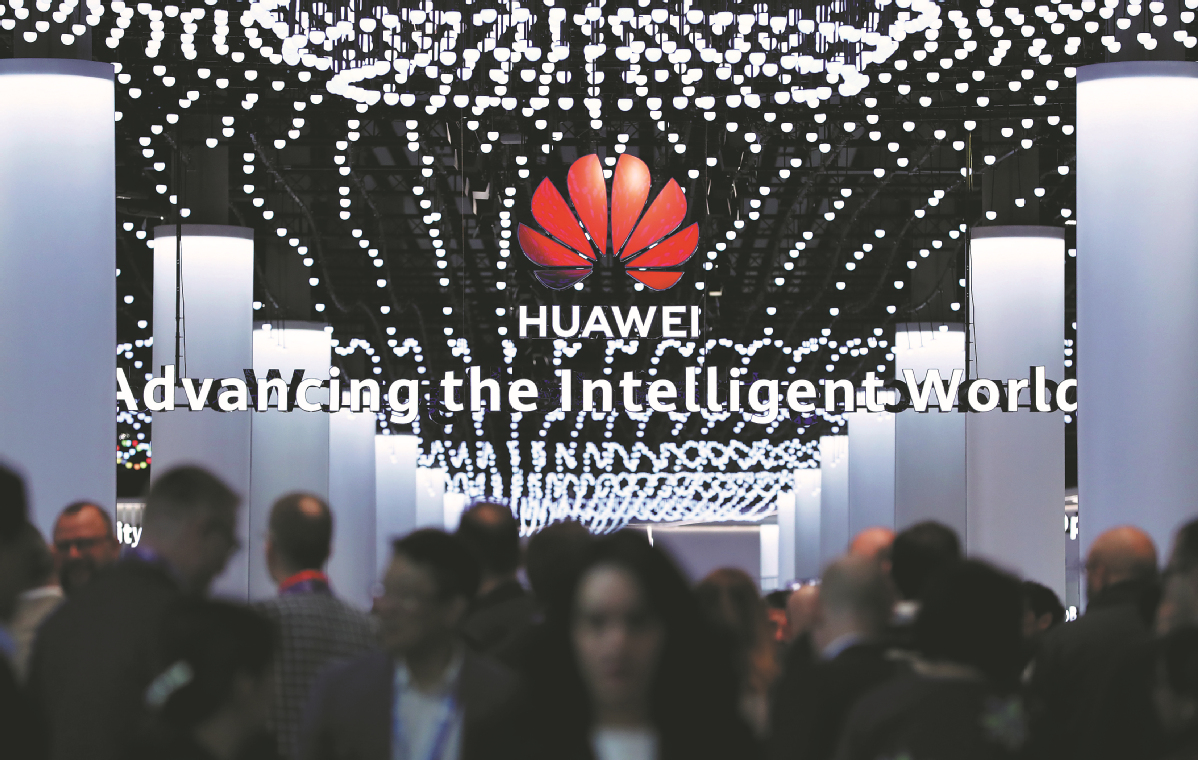 A view of the booth of Huawei at the 2024 Mobile World Congress Barcelona in Spain earlier this year. GAO JING/XINHUA
A view of the booth of Huawei at the 2024 Mobile World Congress Barcelona in Spain earlier this year. GAO JING/XINHUA